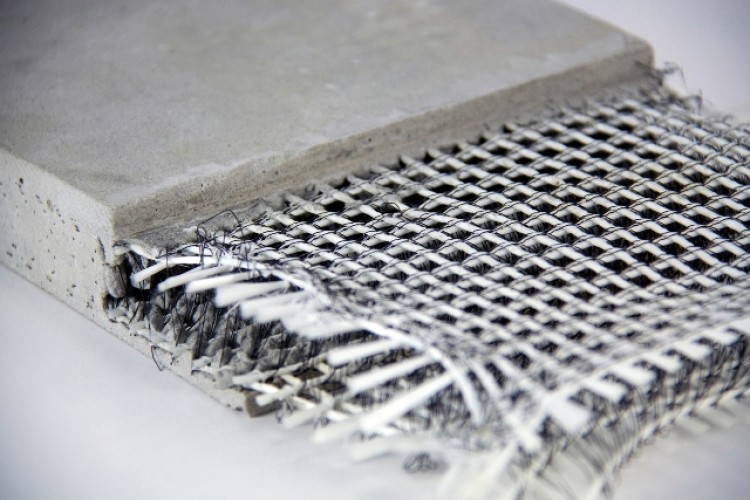Discovering the Uses and Advantages of Recycled Composites in Modern Industries
In today's quickly developing commercial landscape, the use of recycled composites has actually garnered increasing attention for its prospective to redefine conventional production practices. The combinations of recycled products with advanced composite technologies offers an appealing opportunity for boosting sustainability, strength, and cost-efficiency throughout different markets. As markets seek cutting-edge remedies to deal with environmental worries and improve operational performances, the incorporation of recycled compounds becomes an engaging option. This shift in the direction of sustainable practices not just straightens with global conservation efforts yet also uses a myriad of advantages that hold the key to shaping the future of contemporary manufacturing methods.
Environmental Benefits of Recycled Composites
The usage of recycled composites in contemporary markets uses significant ecological advantages, adding to the decrease of waste and the preservation of all-natural sources. By incorporating recycled composites into producing processes, markets can lower their dependence on virgin products, thereby minimizing the quantity of waste produced and the power needed for extraction and production. This shift in the direction of using recycled composites assists in diverting materials from landfills, relieving the burden on waste monitoring systems, and lowering greenhouse gas exhausts connected with traditional manufacturing techniques.
Moreover, using recycled compounds promotes the conservation of natural deposits such as hardwood, minerals, and water, which are often diminished with the extraction and handling of basic materials (composites). By extending the lifespan of products through recycling, sectors can aid maintain ecosystems and biodiversity by lowering the demand for brand-new sources. In general, the fostering of recycled composites in modern sectors plays an essential duty in advertising sustainability and alleviating the ecological impact of manufacturing procedures
Boosted Durability in Item Manufacturing
With a focus on durability and robustness, integrating recycled composites right into product production processes improves resilience and sustainability. By utilizing recycled compounds, producers can create items that are not just strong yet also immune to tear and put on, making them perfect for lasting use in different sectors. The combination of various products in recycled composites can often lead to boosted strength and longevity compared to typical materials, offering a cost-efficient service for producing durable goods.
Among the vital benefits of using recycled composites in product production is the ability to tailor the material homes to meet certain durability requirements. By changing the structure and production techniques, suppliers can customize the recycled composites to stand up to rough ecological problems, hefty lots, or constant usage without endangering on efficiency. This adaptability in layout and manufacturing enables the production of very resilient items that preserve their stability in time, minimizing the demand for constant substitutes and inevitably contributing to a much more lasting manufacturing process.
Cost-Effectiveness and Economic Benefits
Including recycled composites into item manufacturing not only improves durability and sustainability but likewise supplies significant cost-effectiveness and economic advantages. Using recycled composites can cause lowered material expenses as recycled materials are frequently cheaper than virgin products. find out here Additionally, recycling composite products can reduce garbage disposal expenditures and reduce the need for landfill area, adding to overall cost savings for markets.

Development and Design Adaptability With Recycled Compounds
Using recycled composites in modern industries offers unrivaled opportunities for technology and style flexibility. By including recycled products into composite manufacturing procedures, business can push the limits of conventional layout restrictions and explore brand-new possibilities. The convenience of recycled compounds enables the creation of intricate shapes and structures that may not be possible with traditional materials.
One of the essential benefits of recycled composites is their capacity to be formed right into various types, giving developers the freedom to trying out distinct forms and sizes. composites. This adaptability opens up a globe of imaginative opportunities, making it possible for the advancement of light-weight yet durable items that satisfy the details needs of different sectors
Additionally, making use of recycled compounds promotes sustainable techniques and sustains the circular economic situation by lowering waste and reducing the ecological influence of making processes. This focus on environment-friendly design options straightens with the expanding trend towards sustainability in modern markets, making recycled compounds a valuable source for ingenious and forward-thinking firms.
Applications Across Numerous Industries
Recycled composites find varied and impactful applications across a variety of industries because of their special residential properties and sustainability benefits. In the auto field, these products are significantly made use of for making resilient and lightweight components, enhancing fuel efficiency and decreasing carbon discharges. The aerospace industry benefits from recycled compounds in the manufacturing of airplane parts, where the materials' strength-to-weight ratio is essential for making sure safety and efficiency. In building, these composites are utilized for developing solid yet green structure materials, adding to sustainable framework growth. The renewable resource sector employs recycled composites in wind generator blades and solar panels, using their stamina and look at these guys resistance to severe environmental conditions. Additionally, the aquatic market utilizes these products for manufacturing boat hulls and components, supplying enhanced durability and deterioration resistance. The convenience and sustainability of recycled compounds make them useful across different markets, driving development and ecological stewardship. composites.
Verdict
In final thought, the use of recycled composites in contemporary sectors offers considerable ecological advantages, enhanced resilience in product manufacturing, cost-effectiveness, and financial benefits. The use of recycled compounds allows for technology and design flexibility across different sectors. In general, the fostering of recycled compounds offers a lasting and practical remedy for satisfying the requirements of the market while likewise minimizing ecological impact.

One of the vital benefits of using recycled composites in item production is the capability to tailor the product buildings to fulfill certain sturdiness requirements. Making use of recycled compounds can lead to decreased material costs as recycled products are commonly less expensive than virgin products. The aerospace industry benefits from recycled composites in the production of aircraft components, where the materials' strength-to-weight ratio is critical for making certain safety and efficiency.